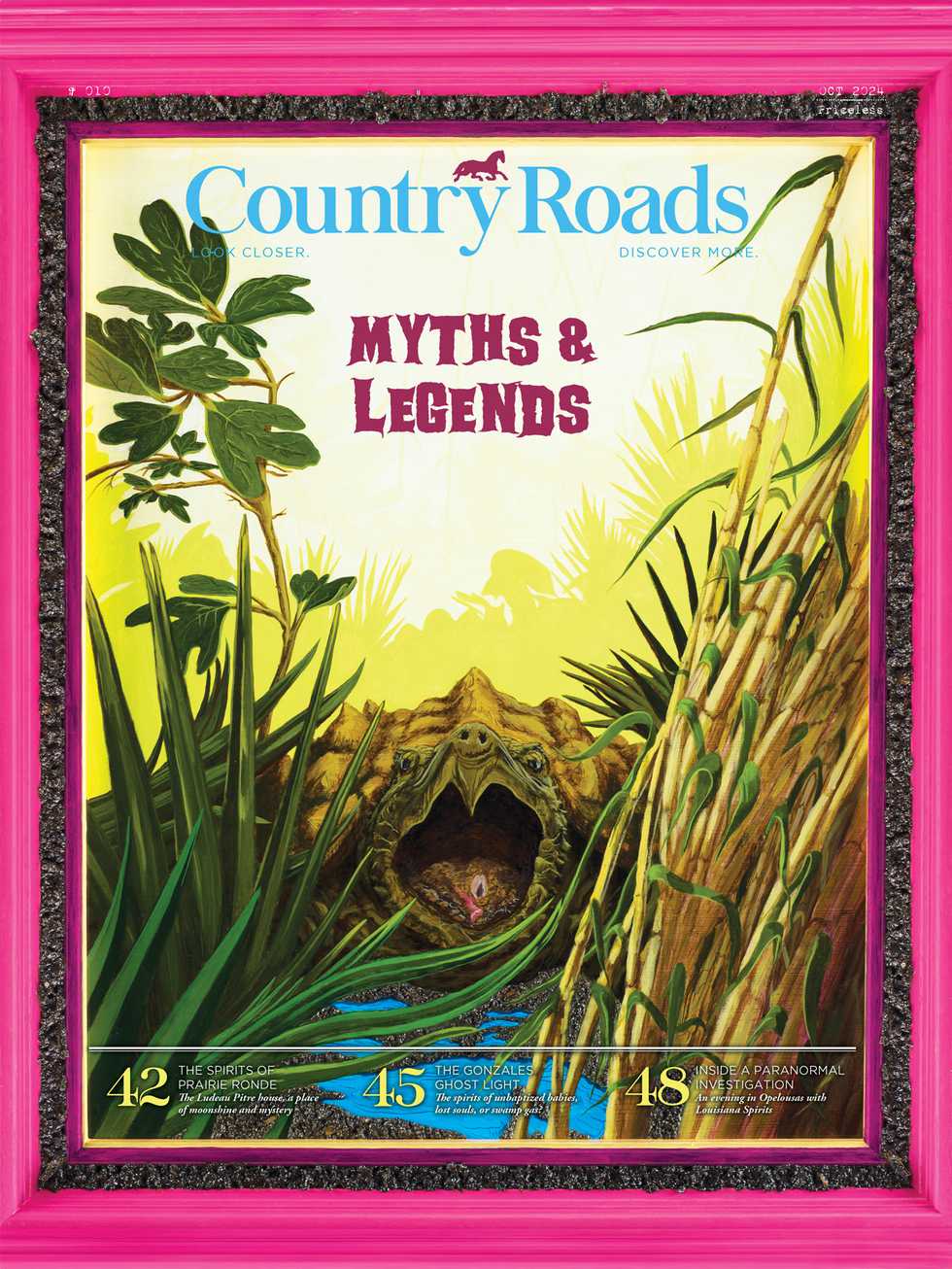
Pippin Frisbie-Calder
"Ibis" 2018, five-block woodcut, 30"x40"
It is sometimes said—or maybe assumed by those who do not engage in it—that the making of art must be a solitary enterprise. But New Orleans printmaker Pippin Frisbie-Calder doesn’t play that way. “At first I thought I wanted to be an illustrator,” she said, “but I loved the environment of the print shop, which is a very communal, very shared place. The machinery used to make the work is huge and expensive so you really have to share. Printmakers tend to be exploratory and open to sharing their discoveries. I loved that.”
Pippin (let’s call her Pippin, since the journalistic convention of identifying subjects by last name doesn’t work well with hyphens) was speaking on the phone while roaming around Jazz Fest’s Contemporary Crafts Marketplace, where she was both an exhibitor and a juror this year. Clearly she is a people person—one who can’t help but weave collaboration into every part of her artistic process. Fascinated by the wax-resist dyeing technique known as batik, she went to Indonesia, where she fell in with a bunch of graffiti artists and printmakers immersed in that country’s vibrant contemporary printmaking scene. “In Indonesia the culture is very respectful and understands its history, but also incredibly contemporary,” she said. “There was a constant weaving and re-examining of their history in a contemporary setting that had a huge influence on my style and technique. They were doing these huge woodcuts, and printing with their feet. Everybody in their art scene was unstoppable!” Later, without access to a printing press, Pippin would throw a dinner party when she finished a woodcut, inviting friends to walk on the back of the print, providing enough weight to transfer the image.
Central to everything Pippin does is an effort to create experiences that connect her viewers to the natural world. Writing on her website she explains, “My subjects range from coral reefs, wetland ecosystems, and microbial landscapes, to communities and imaginary spaces. Each series in its own way addresses the complexities of human behavior as we strive to extinguish, preserve, and enjoy the spaces we inhabit.” For an installation entitled Canceled Edition, Pippin created hundreds of Ivory-Billed Woodpeckers—the presumably extinct former resident of the Louisiana swamps, nicknamed the “Lord God Bird” by early observers on account of its large size and dramatic plumage. By the hundreds, she installed individually cut woodcut prints of the bird into a gallery space, then invited attendees to each take one home with them. That way, even as the gallery’s walls empty, each bird continues to provoke ongoing conversation about our proclivity for loving things to death. “The idea was to create a simulated species extinction,” she explained. “In my work I feel like the main goal is to get people to connect—to have a revelation. Canceled Edition is the closest I’ve come to that.”
[Read this: Jonathan Mayers paints hard-hitting ecological allegories]
One more reason Pippin cherishes printmaking: like the natural systems that her art explores, printmaking is something of an endangered species. “Printmaking was the earliest form of disseminating knowledge. It was the first way information became widely available,” she noted. “Technology might seem to have made it slow and obsolete but there are all these rules that come with printmaking. Each comes with boundaries, but each provides its own opportunities too. When I started working with endangered environments I got interested in the process by which I was examining them. Woodcut is my favorite for depicting the natural world. After months of carving, there are few things in this world more satisfactory than watching, in one afternoon, as multiples of an image build on a wall. To call it exhilarating would be an understatement!”
Pippin Frisbie-Calder earned an MFA from Tulane University, where she teaches as an adjunct professor. In New Orleans she is represented by LeMieux Galleries, which will host an exhibit of her hand-printed wallpapers and mini shadowbox worlds this October. From September 7—27 another version of Canceled Edition focused on environmental awareness and identification will appear (then disappear) at the St. Tammany Art Association in Covington. pippinprint.com.
Wish you had access to up-to-date, dynamic information about happenings in Louisiana's fine arts? Sign up for Arts Monthly, the region's first curated resource devoted to celebrating the regional arts scene. You'll receive a free, monthly newsletter featuring exhibits, artist interviews, curator insights, guides, and more, from your friends at Country Roads magazine.

